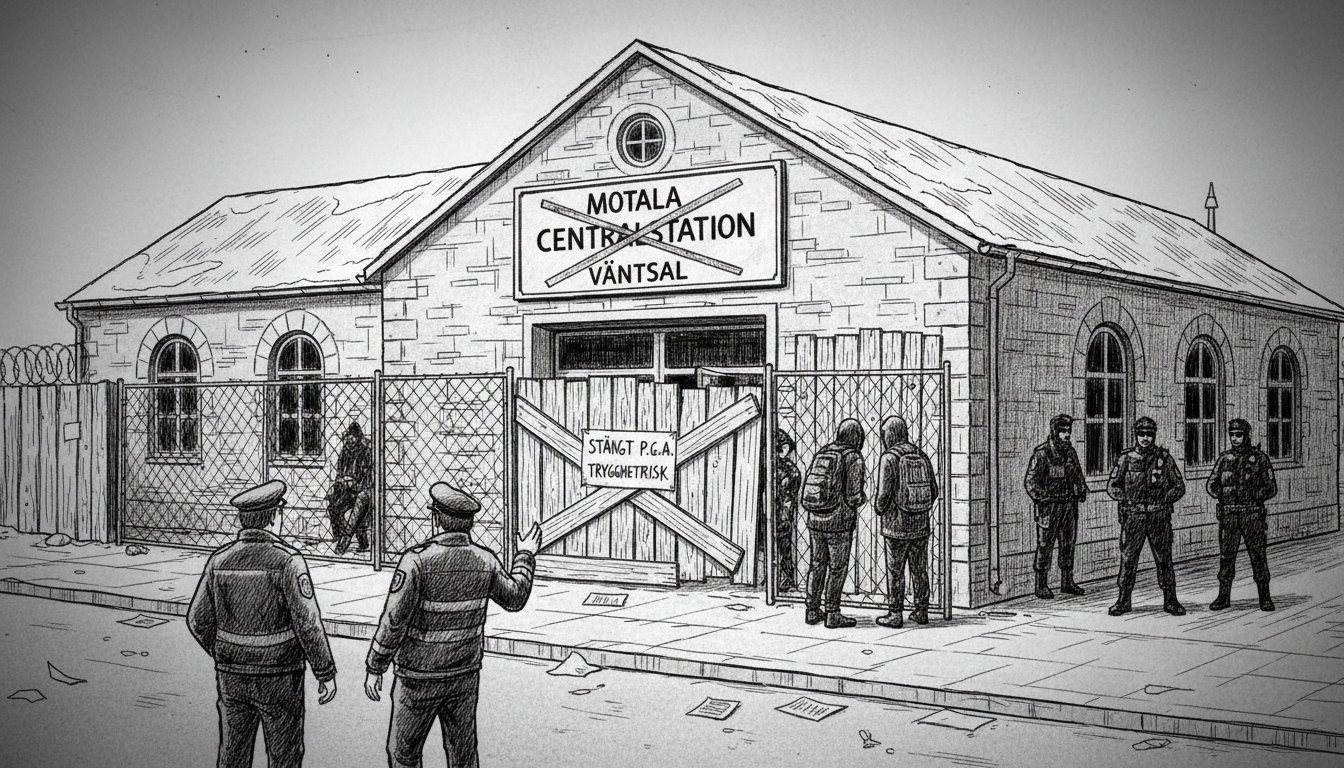Authorities in Motala have indefinitely closed the central station waiting room following escalating security concerns. The decision comes after repeated incidents involving underage drinking, vandalism, and drug dealing in the facility. Local crime prevention coordinator Mannie Gustavsson confirmed the situation had deteriorated to the point where bus drivers felt unsafe using restrooms or taking breaks in the area.
The closure took effect from October 22 and will remain until further notice. Municipal officials acknowledge they cannot predict when the facility might reopen. They are currently evaluating necessary measures to restore safety for all visitors and workers. This represents a significant disruption for commuters who rely on the central station facilities.
Previous security measures proved insufficient despite ongoing efforts. Authorities installed specialized locks on restrooms, increased camera surveillance, and boosted security guard presence. The waiting room also underwent complete daily closures between 11 AM and 2 PM to allow cleaning crews to work safely. These partial measures failed to address the core security issues.
Security company Securitas will now conduct additional patrols around Motala Central station. The enhanced security presence aims to prevent the area from becoming a gathering spot that creates unsafe conditions. Police and regional transport company Östgötatrafiken have been formally notified about the closure decision.
This situation reflects broader challenges facing Swedish public transportation hubs. Many stations struggle with maintaining order while remaining accessible to the public. The Motala case demonstrates how quickly security can deteriorate when multiple issues converge. Local authorities now face the difficult task of balancing public access with necessary security measures.
International readers might find Sweden's approach to public space management particularly interesting. The country typically maintains high standards for public facilities, making this closure especially notable. The extended closure suggests authorities recognize the seriousness of the security breakdown. Commuters and local businesses will likely feel the impact until a sustainable solution emerges.
The waiting room closure affects hundreds of daily commuters who use Motala Central station. Many now lack sheltered waiting areas during Sweden's increasingly cold autumn weather. The situation raises questions about how other Swedish municipalities handle similar challenges at transportation hubs. Local officials must now develop a comprehensive security plan that addresses both immediate concerns and underlying causes.
What does this mean for Motala's reputation and daily life? The closure undoubtedly creates inconvenience, but it also signals authorities are taking security seriously. The coming weeks will show whether these measures successfully address the core problems or merely displace them to adjacent areas.

